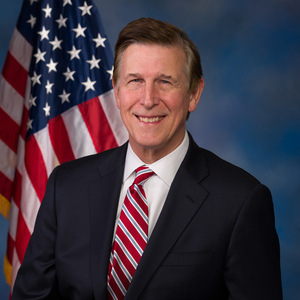House hearing focuses on DOE loan guarantee program




March 11, 2016
BY Erin Krueger
On March 3, two subcommittees associated with the House Committee on Science, Space and Technology held an oversight hearing on the U.S. Department of Energy’s loan guarantee program. While some committee members and panelists advocated in support of the loan guarantee program, others argued it should be eliminated.
Loan guarantees awarded to three Abengoa-affiliated projects were among the topics discussed during the event. This includes the $132.4 million loan guarantee awarded to Abengoa Bioenergy in September 2011 to support construction of its cellulosic ethanol plant in Hugoton, Kansas. The other two are the Solana and Majave solar projects, which are operated by Abengoa Solar and owned at least in part by Abengoa Yield.
Advertisement
Rep. Don Beyer, D-Va., defended the DOE’s loan guarantee program during the hearing, including the loan guarantees awarded to the three Abengoa projects. “The particular interest in these loans is understandable because Abengoa, based in Spain, has recently begun insolvency proceedings. Fortunately, the $132 million loan for Abengoa related to bioenergy project backed by DOE loan guarantee has been repaid in full,” he said. “The other two projects named Solana and Mohava are currently operating and repaying interest and principle on these DOE loans as scheduled.”
In his testimony, Mark McCall, executive director of the DOE’s Loan Programs Office, spoke about the importance of the department’s loan guarantee programs. He explained that deploying clean energy technologies at commercial scale for the first time entails technology and market risk. Advancing these technologies requires significant amounts of capital, he said, noting that commercial lenders and bondholders are often unwilling to finance projects that use new technologies because those technologies have not been deployed at full-scale and do not yet have a history of performance. He stressed the DOE’s Title XVII loan guarantee program fills a critical gap in the marketplace, providing project developers with sufficient full-term debt financing to design and construct these projects.
Advertisement
Frank Rusco, director of natural resources and environment at the Government Accountability Office; Gregory Kats, president of Capital E; and Nicolas Loris, Herbert and Joyce Morgan Fellow, Thomas A. Roe Institute for Economic Policy Studies, Heritage Foundation, also testified at the hearing. Additional information and an achieved video of the event are available on the House Committee on Science, Space and Technology website.
Related Stories
The U.S. Department of Energy Bioenergy Technologies Office (BETO) announced up to $23 million in funding to support research and development (R&D) of domestic chemicals and fuels from biomass and waste resources.
The U.S. DOE has announced its intent to issue funding to support high-impact research and development (R&D) projects in two priority areas: sustainable propane and renewable chemicals and algal system cultivation and preprocessing.
Sens. Sherrod Brown, D-Ohio, and Pete Ricketts, R-Neb., in August introduced the Renewable Chemicals Act, a bill that aims to create a tax credit to support the production of biobased chemicals.
The Chemical Catalysis for Bioenergy Consortium, a consortium of the U.S. DOE’s Bioenergy Technologies Office, has launched an effort that aims to gather community input on the development of new biomass processing facilities.
USDA on March 8 celebrated the second annual National Biobased Products Day, a celebration to raise public awareness of biobased products, their benefits and their contributions to the U.S. economy and rural communities.
Upcoming Events










